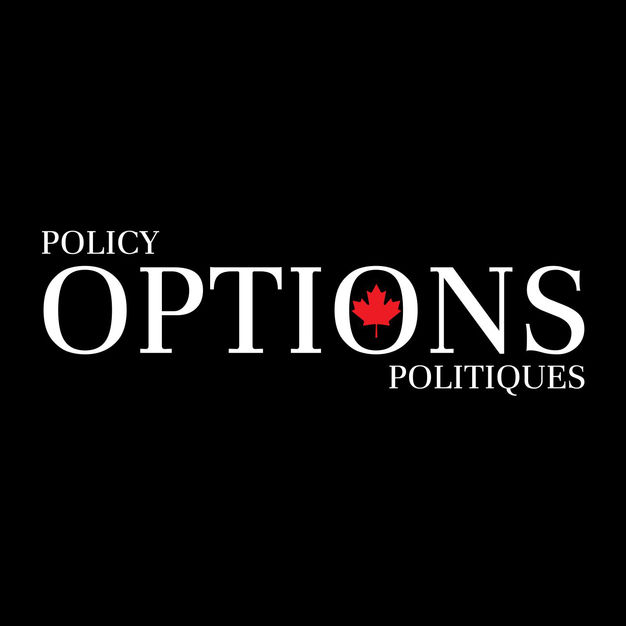
Policy Options Podcast
IRPP
Policy Options is a digital magazine published by the Institute for Research on Public Policy (IRPP) in Montreal, Quebec. It features daily articles on issues of public policy by contributors from academia, research institutions, the political world, the public service and the non-profit and private sectors. We’re committed to introducing our listeners to a diversity of viewpoints on the important public policy challenges of our time.
- 1 hour 4 minutesThe Future of Community Housing - Demystifying Community Housing 05On this last episode in this series, our co-hosts Hanan Ali and Natasha Mhuriro talked to four guests. Djaka Blais, Executive Director of Hogan’s Alley Society; Robert Byers, President & C-E-O of Namerind Housing Corporation; Joshua Evans, Associate Professor at the University of Alberta. and Franz Bernhardt, Postdoctoral Researcher at Aalborg University, Denmark. We spend time thinking about and imagining alternative models of community housing. How could or should Canada’s community housing sector look differently in the future? What are some good examples of innovative housing projects and practices from across the country – and around the world? What lessons can we learn? The production of the podcast series is led by Dr. Yushu Zhu and Dr. Meg Holden at Simon Fraser University as part of the Community Housing Canada project and the Housing Inequality in Canada project, in partnership with IRPP. Student researchers include Hanan Ali, Natasha Mhuriro, Pok Man Tong, and Khoa Vo. This podcast has been a dedicated collaboration, with production assistance by Ricardo Montrose, Cléa Desjardins and Luc Moulaison at IRPP, and audio producer Jackie G. Karen Sawatzky contributes to script editing for this episode. If you like what you heard and you want to know more about the Institute for Research on Public Policy, head over to https://irpp.org/. Additional resources: Hogen’s Alley Society - A Black-led non-profit organization dedicated to advancing the social, political, economic, and cultural well-being of people of African descent in Metro Vancouver. Namerind Housing Corporation - An Indigenous-led housing provider and social enterprise. Aboriginal Housing Management Association (AHMA) - An umbrella organization composed of 41 Members that are each Indigenous Housing providers. The first Indigenous Housing Authority in Canada and only the second in the world. Ontario Aboriginal Housing Services - A non-profit housing provider with a focus on the Indigenous community. Housing Boom in Gateway Cities – Book written by David Ley, 2023. Utilising a comparative approach in five gateway cities, the author provides an understanding of the politics of booms, lifting the debate beyond narrow housing and real estate studies. Policy fact sheet: National Building Fund, Denmark. European Construction Sector Observatory. 2019. The resilience of social rental housing in the United Kingdom, Sweden and Denmark: How institutions matter. Timothy Blackwell & Bo Bengtsson. Housing Studies. 2023. 38:2, 269-289.26 June 2024, 2:35 pm
- 59 minutes 55 secondsResilience and Challenges of the Community Housing Sector - Demystifying Community Housing 04In this episode of Demystifying Community Housing, we hear from Alex Hemingway, Christina Maes Nino and Steve Pomeroy, on the various challenges facing the community housing sector and how to bolster its resilience. Additional resources: • Canadian Housing Evidence Collaborative (CHEC), a network of more than 30 academics and more than 50 practice partners representing policymakers, housing providers and equity-seeking groups, to accelerate evidence-based solutions that advance Canada’s National Housing Strategy • Business Transformation: Promising Practices for Social and Affordable Housing in Canada. 2015. Published by Housing Partnership Canada. • The Community Housing Transformation Centre, a network of organizations that represent and serve the needs of Canada’s community housing sector. The centre provides access to tools, financial resources and best practices to support the growth, transformation and resilience of community housing. Funding: This podcast series receives funding from the Canada Social Sciences and Humanities Research Council Partnership Grant for The Community Housing project [430-2021-00887] and the Insight Development Grant for the Housing Inequality project [890-2018-1013].12 June 2024, 10:00 am
- 53 minutes 19 secondsWhy Do We Need Community Housing? - Demystifying Community Housing 03In this episode of Demystifying Community Housing, Hanan Ali and Natasha speak with Damian Collins, Professor of Earth & Atmospheric Sciences at the University of Alberta and Director of the Community Housing Canada Research Partnership, Marika Albert, the Policy Director of B.C. Non-Profit Housing Association and Alex Hemingway a Senior Economist and Public Finance Policy Analyst at the Canadian Centre for Policy Alternative’s B.C. Office. Together, they discuss what roles community housing can play in addressing the housing crisis, particularly in supporting tenant well-being, as Canada’s housing crisis wears on. Additional resources: • Office of the Federal Housing Advocate, established under the National Housing Strategy • The Globe and Mail’s housing section covers the full spectrum of housing issues from a wide variety of perspectives and communities across Canada • Stories About Here, a CBC Gem and Youtube documentary • The Non-Capitalist Solution to the Housing Crisis, a video from Uytae Lee’s popular urbanist Youtube channel: About Here • Opening Doors: Unlocking Housing Supply for Affordability, final report of the Canada-British Columbia Expert Panel on the Future of Housing Supply and Affordability Funding: This podcast series receives funding from the Canada Social Sciences and Humanities Research Council Partnership Grant for The Community Housing project [430-2021-00887] and the Insight Development Grant for the Housing Inequality project [890-2018-1013].29 May 2024, 10:00 am
- 1 hour 1 minuteLife in Community Housing - Demystifying Community Housing 02In this episode of Demystifying Community Housing we hear from AnaLori Smith, Pam Gill and Rita Wong about what it’s like to live in community housing. We’ll also talk to non-profit housing practitioners Marika Albert and William Azaroff about the challenges of operating community housing and supporting the well-being of their tenants.15 May 2024, 10:00 am
- 1 hour 1 minuteWhat is Community Housing? - Demystifying Community Housing 01In this episode of Demystifying Community Housing, co-hosts Hanan Ali and Natasha Mhuriro speak with Rebecca Schiff, dean of the Faculty of Human Health Sciences at the University of Northern British Columbia; Ray Sullivan, executive director of the Canadian Housing and Renewal Association; and David Hulchanski, a professor in the Faculty of Social Work and the Graduate Program in Planning in the Department of Geography at the University of Toronto. Together they discuss what community housing means, who it serves or should serve, and how to pave the path forward for resilient community housing. SHOW NOTES The production of the podcast series is led by Dr. Yushu Zhu and Dr. Meg Holden at Simon Fraser University as part of the Community Housing Canada project and the Housing Inequality in Canada project, in partnership with IRPP. Student researchers include Hanan Ali, Natasha Mhuriro, Pok Man Tong, and Khoa Vo. This podcast has received production support and assistance from Cléa Desjardins, Ricardo Montrose and Luc Moulaison at IRPP, and audio producer Jackie G. If you like what you heard and you want to know more about the Institute for Research on Public Policy, head over to https://irpp.org/. Additional resources: Where Are All My Relations? Stories of Indigenous Homelessness in B.C. is an eleven-episode series that explores Indigenous homelessness rooted in Indigenous worldviews and experiences. The documentary can be viewed via Indigenous-led Solutions to Indigenous Homelessness — Lu’ma Group of Companies (lnhs.ca). This film was funded by the Province of BC. The videos were produced by Little Bird Media, an Indigenous-led firm based in Vernon, B.C., including Lu’ma Native Housing Society. The project was stewarded by leaders from various Indigenous organizations. The documentary is licensed under a CC BY-NC-ND license. PUSH (2019), a documentary film investigating housing financialization Housing Assessment Resource Tools (HART) at the University of British Columbia Canadian Housing Evidence Collaborative (CHEC) at McMaster University At Home in the North, partnership project for Northern housing security and homes Neighbourhood Change Research Partnership based at the University of Toronto Canadian Housing Renewal Association (CHRA) Economic Study: The Impact of Community Housing on Productivity Hey Neighbour Collective (HNC) on community-building, social connectedness, and resilience in B.C.’s multi-unit housing communities. Funding: This podcast series receives funding from the Canada Social Sciences and Humanities Research Council Partnership Grant for The Community Housing project [430-2021-00887] and the Insight Development Grant for the Housing Inequality project [890-2018-1013].1 May 2024, 11:00 am
- 32 minutes 18 secondsWelcome to Demystifying Community HousingWelcome to Demystifying Community Housing, a special series from the IRPP’s Policy Options Podcast, which explores the different facets of community housing and its role in addressing Canada’s housing crisis. In this episode, we speak with Yushu Zhu and Meg Holden, professors of urban studies at Simon Fraser University, who are leading the production of this podcast series. Together we talk about their research on community housing, the reason they worked on this podcast and what listeners can expect. SHOW NOTES The production of the podcast series is led by Dr. Yushu Zhu and Dr. Meg Holden at Simon Fraser University as part of the Community Housing Canada project and the Housing Inequality in Canada project, with support from IRPP. Student researchers include Hanan Ali, Natasha Mhuriro, Pok Man Tong, and Khoa Vo. This podcast has been a dedicated collaboration, with production assistance by Cléa Desjardins, Ricardo Montrose, and Luc Moulaison at IRPP, and audio producer Jackie G. If you like what you heard and you want to know more about the Institute for Research on Public Policy, head over to https://irpp.org/. Additional resources: Community Housing Canada – Partners in Resilience: A research-practice partnership project aimed at increasing the sustainability and resiliency of the community housing sector. It is part of an independent, Canada-wide collaboration of academics and community partners: The Collaborative Housing Research Network (CHRN). The neighbor spectrum in community housing: Pro-social, anti-social and asocial neighboring in Vancouver (Holden et al., 2024): This journal article presents focus group research with community housing residents in Vancouver, Canada, investigating the role, activities, and importance of neighboring to these individuals living in vulnerable situations. A commentary based on this research is published The Conversation: Higher density living is changing the way neighbouring works in Canada. Housing vulnerability and well-being in the COVID-19 pandemic (Zhu et al., 2022): Drawing on a representative sample survey of B.C. adult residents, this report examines different aspects of housing situations and factors that may increase housing vulnerability or resilience during the pandemic. Housing Vulnerability Reconsidered: Applications and Implications for Housing Research, Policy and Practice (Zhu et al., 2024): A special issue published at Housing, Theory and Society (academic journal). This issue presents research into what housing vulnerability means in different world regions, what structures and systems may be driving it, and the variety of experiences of housing vulnerability. Funding: This podcast series receives funding from the Canada Social Sciences and Humanities Research Council Partnership Grant for The Community Housing project [430-2021-00887] and the Insight Development Grant for the Housing Inequality project [890-2018-1013].1 May 2024, 10:00 am
- 1 hour 1 minutePO Podcast 167 - Addressing Ecological Risks (Institutions for Effective Climate Action conference)PO Podcast 167 - Addressing Ecological Risks (Institutions for Effective Climate Action conference) by IRPP27 March 2024, 10:00 am
- 34 minutes 39 secondsPO Podcast 166 - Climate Change in the NorthPO Podcast 166 - Climate Change in the North by IRPP20 March 2024, 10:00 am
- 23 minutes 43 secondsPO Podcast 165 - An Interview between Jennifer Ditchburn and Kim PateIt is undeniable that poverty and income inequality are two of Canada’s most pressing issues. But it is less clear what policy solutions need to be enacted to address these problems. In response to these challenges, some policy practitioners have called for the implementation of an unconditional Basic Income that would be accessible to all Canadians. Bill S-233, An Act to develop a national framework for a guaranteed livable basic income, is a clear example of this response. Proponents of a Basic Income present the policy framework as a simple and direct response to poverty, on the grounds that sending people a cheque through the tax system seems efficient. However, a host of researchers have called into question the underlying assumptions about the causes of poverty that proponents of a basic income take for granted. For instance, is basic income the best tool to achieve a just society? Could other social policies be put in place to achieve the desired outcome more holistically and efficiently? The book Basic Income and a Just Society, published last year by the IRPP, takes such an approach. This conversation between IRPP CEO and President Jennifer Ditchburn and Senator Kim Pate – a sponsor of Bill S-233 – tackles these questions, which have been at the centre of the IRPP’s and Senator Pate’s work for years.6 March 2024, 5:45 pm
- 1 hour 16 minutesPO Podcast 164 - An all-in approach to solving Canada’s affordability and climate crisesAffordability and climate are compounding, overlapping crises — and people are struggling through them both at the same time. Individuals across Canada are tired of making trade-offs because, when it comes to life’s necessities — housing, food, transportation and a sustainable climate — there should be none. Solutions that ignore the full picture are no longer acceptable. What’s needed now is a fundamentally different approach to policymaking, one that considers all basic needs because they are all interdependent. The Affordability Action Council (AAC), a collaboration of diverse policy and community leaders, has broken down silos to table a package of “all-in” solutions to help meet Canadians’ basic needs in an integrated way. On Thursday, February 1, we held a panel discussion featuring three AAC members who explored the group’s main areas of focus — food, transportation and housing — and explained how a holistic approach to policymaking can lead to solutions that lower cost, reduce vulnerability and give people greater control over their lives. The event took place at the Impact Hub in Ottawa and was also live streamed. This podcast is the audio from that discussion.14 February 2024, 12:00 pm
- 9 minutes 23 secondsThe history of colonialism and slavery still impacts Black people in Canada by Fauzya MooreTo move beyond this long legacy, federal and provincial governments need to focus on educating Canadians about Black history.9 February 2024, 11:00 am
- More Episodes? Get the App
Your feedback is valuable to us. Should you encounter any bugs, glitches, lack of functionality or other problems, please email us on [email protected] or join Moon.FM Telegram Group where you can talk directly to the dev team who are happy to answer any queries.
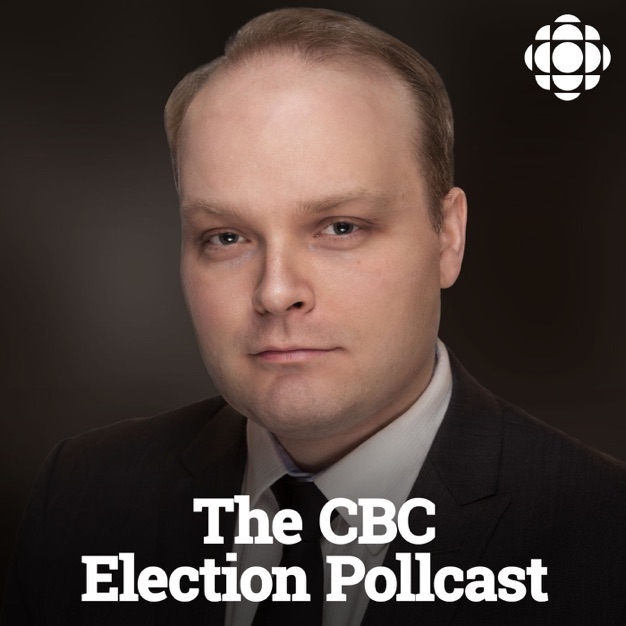 The CBC Election Pollcast from CBC Radio
The CBC Election Pollcast from CBC Radio
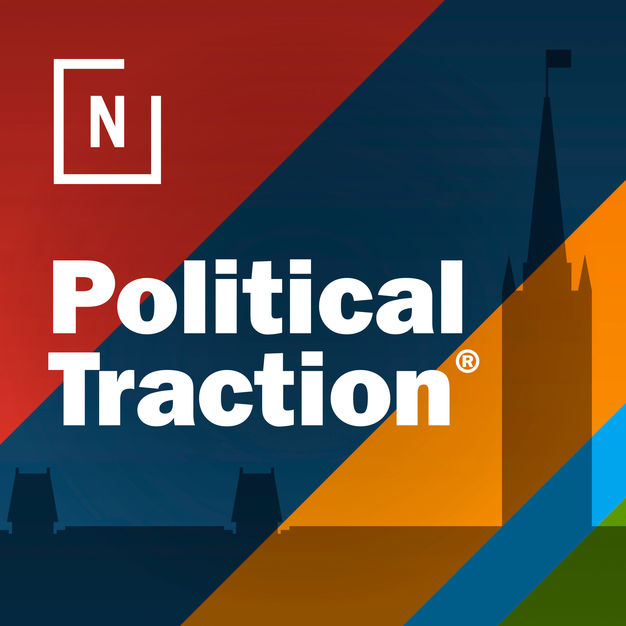 Political Traction
Political Traction
 CPAC Today in Politics
CPAC Today in Politics
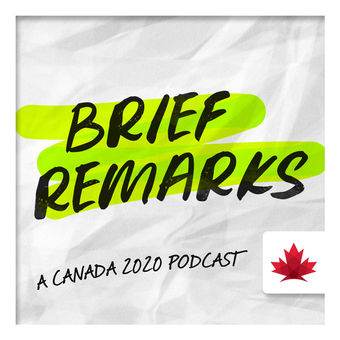 Brief Remarks
Brief Remarks
 Follow-Up With Althia Raj
Follow-Up With Althia Raj
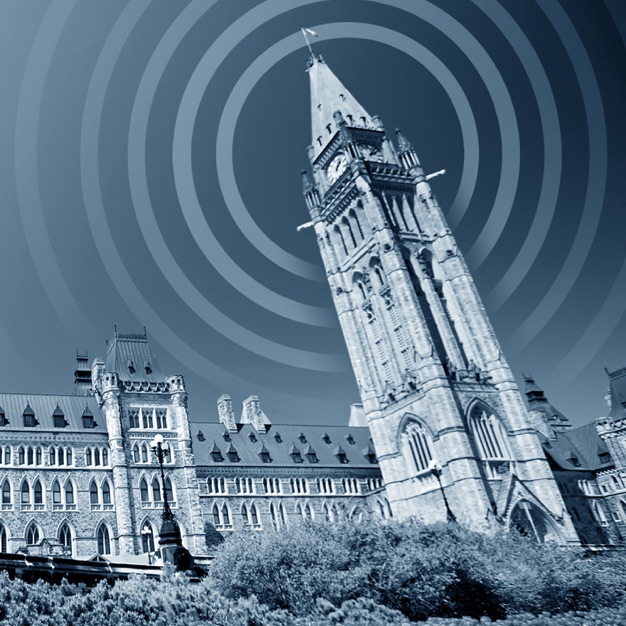 Maclean's On the Hill Politics Podcast
Maclean's On the Hill Politics Podcast